What if contemporary art could give a new lease of life to furniture that has lost its heritage value? That’s the slightly crazy but successful idea of the Mobilier national, which has entrusted 39 contemporary designers with the task of transforming furniture from its collections.
53 previously unseen works, the “alienated” of the Mobilier national, can be seen until 7 January in a free and highly original exhibition.
Article produced in commercial collaboration with the Mobilier national
Summary
What is the Mobilier national?
Although the Mobilier national is best known for furnishing the Republic’s ministries and residences, the institution’s remit goes far beyond that!
Created in the 17th century, the Mobilier national has been a major player in the promotion and development of art and design since its inception. In addition to furnishing the State’s residences, the Mobilier national is also responsible for :
- To create furniture and textiles on behalf of the State;
- To conserve and restore its collections of 100,000 textile and furniture objects;
- To perpetuate and pass on traditional craftsmanship skills and techniques through 7 restoration workshops;
- Promote its heritage through exhibitions, loans and publications.
“Alienated” furniture
The furniture conserved by the Mobilier national is “inalienable”, meaning that it cannot be transferred or sold. However, some of these pieces may lose their heritage value over the years. If they are unused, in poor condition or of no particular historical interest, they may be destroyed, sold or reused on the advice of a scientific committee, and thus become “alienated”.
In an approach that is both artistic and ecological, the Mobilier national has entrusted some of this furniture to contemporary artists, who have been able to reinterpret it in their own way. Thus “pimped”, remodelled, redecorated and even transformed by the artists, the furniture regains its heritage value and returns to the Mobilier national’s collections. It’s an innovative and original approach that preserves the furniture while keeping up with the times, and reusing what already exists.
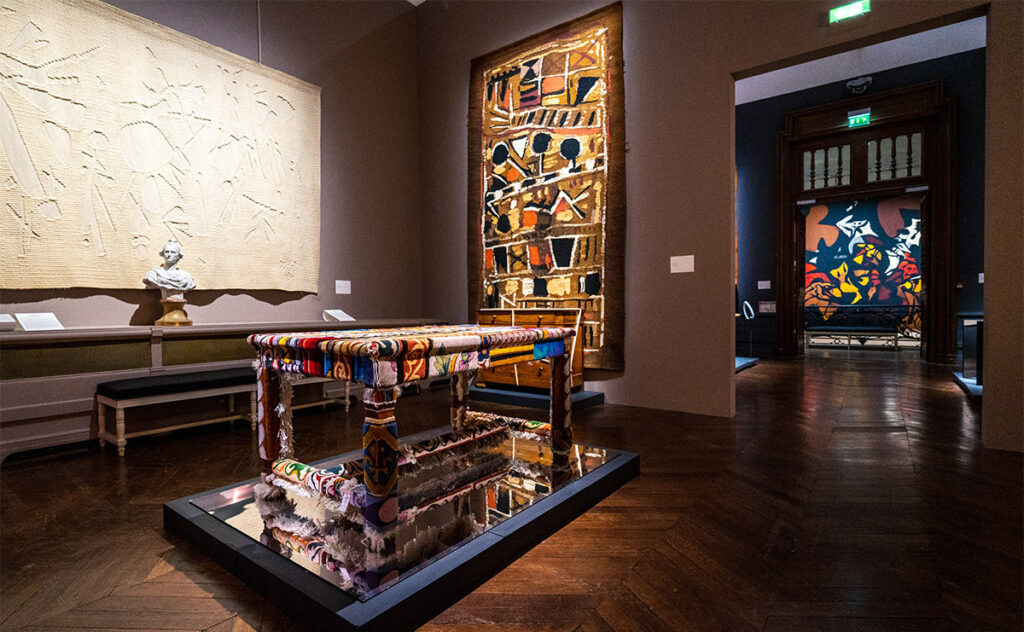
A closer look at some of the “alienated” at the Mobilier national
There are 53 works in the exhibition, and here’s a sneak preview with a selection of my favourites!
Wreck desk, by Valentine Huyghues Despointes
It’s hard to imagine that an Empire-style desk is hidden beneath this magnificent décor! Valentine Huyghues Despointes seems to have pulled it out of the seabed. The desk is now transformed, inhabited by fish and coral, a marvel of life and colour!
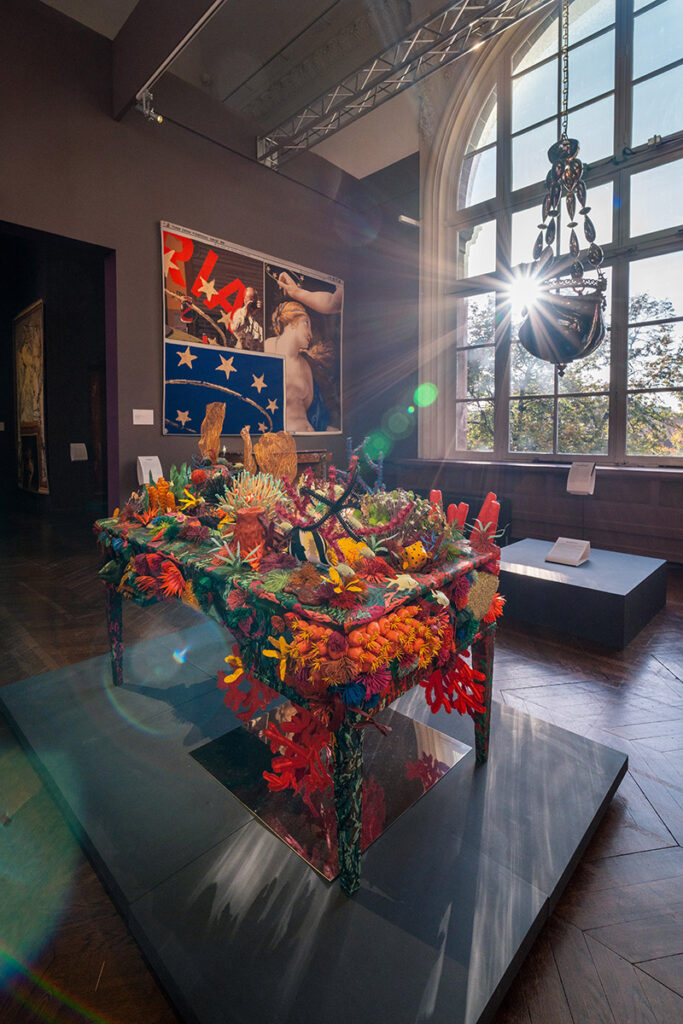
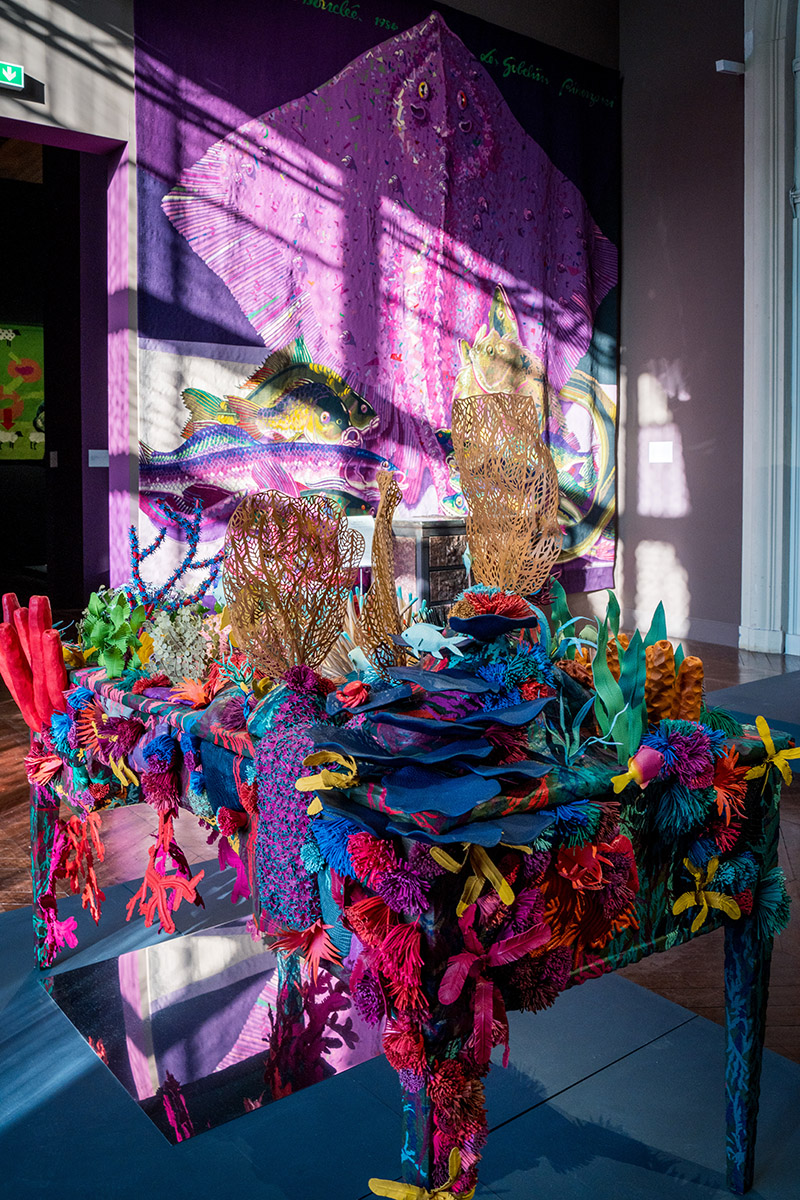
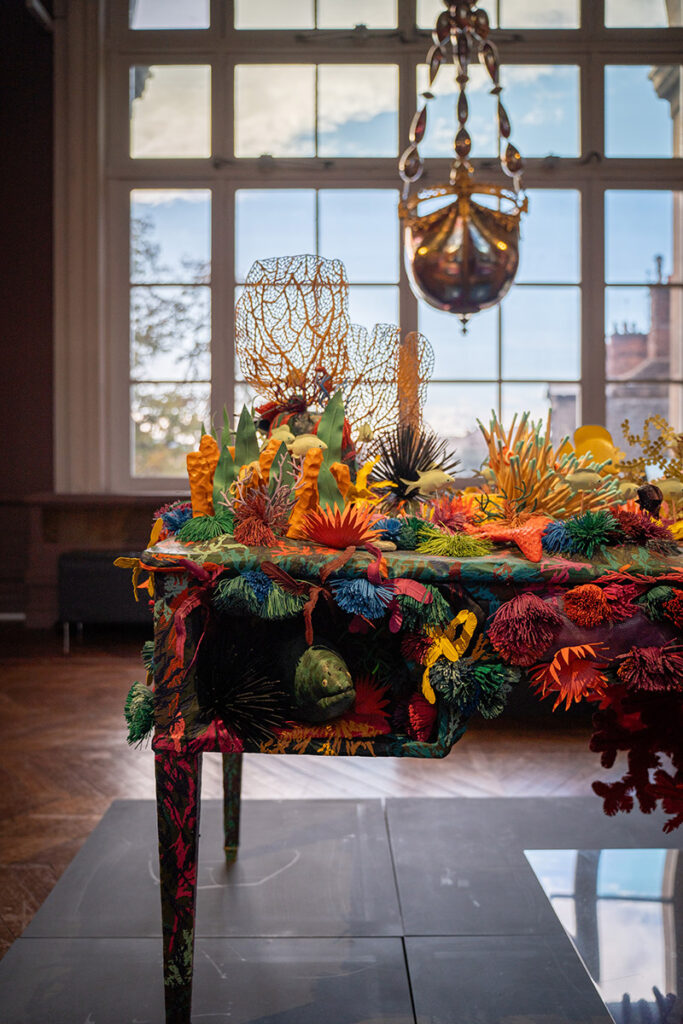
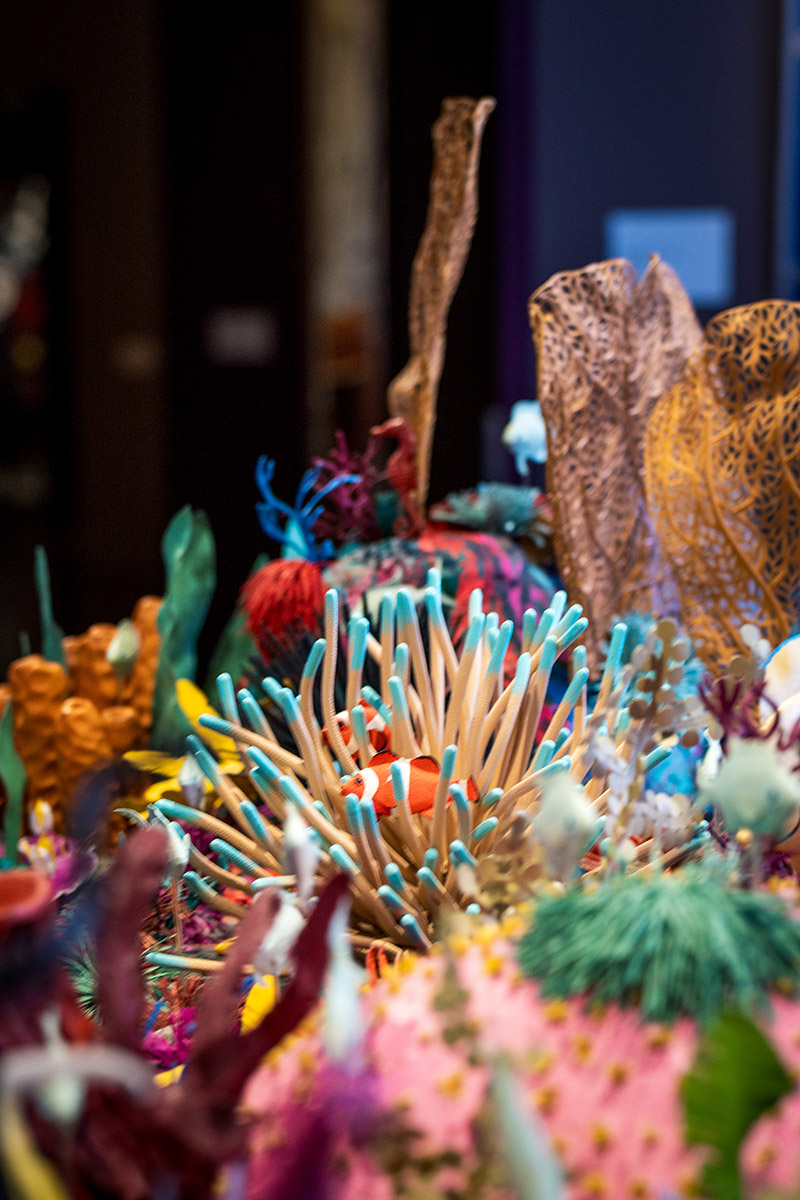
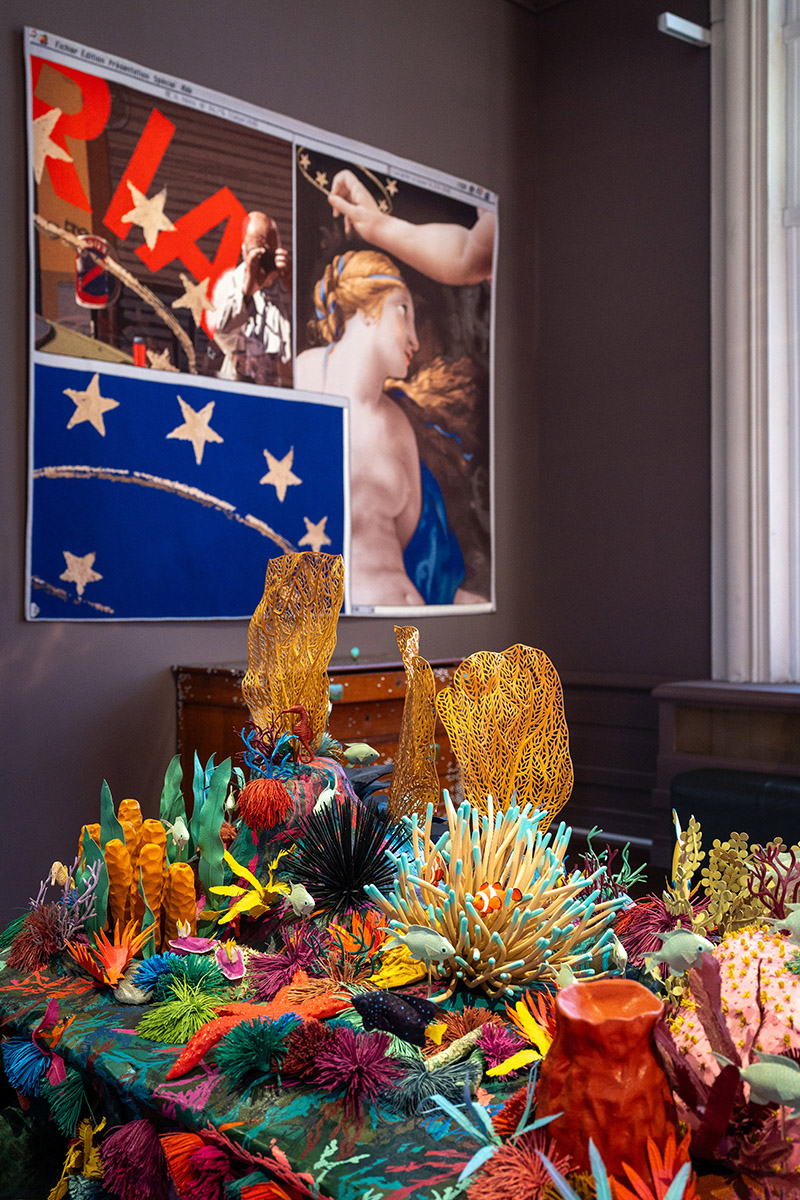
Nourf-desk and Empire-Nouf, by Pimax
Nourf Nourf, the emblematic dog of street artist Pimax, has left the city walls to settle on an Empire-style mahogany desk and an early 19th-century writing desk, which “Nourf” has given a new lease of life!
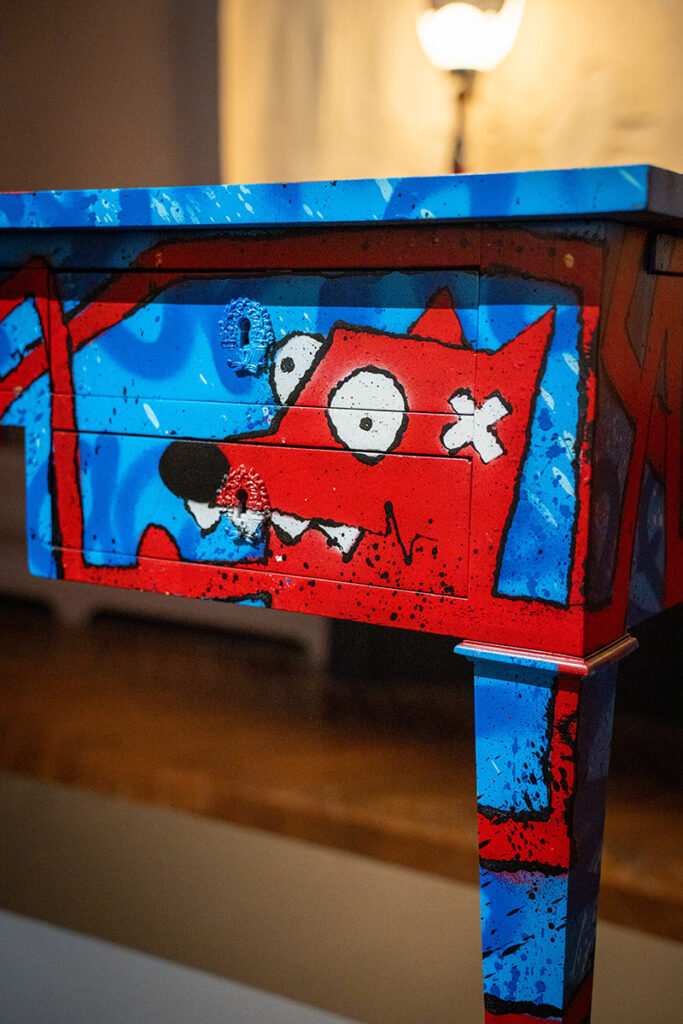
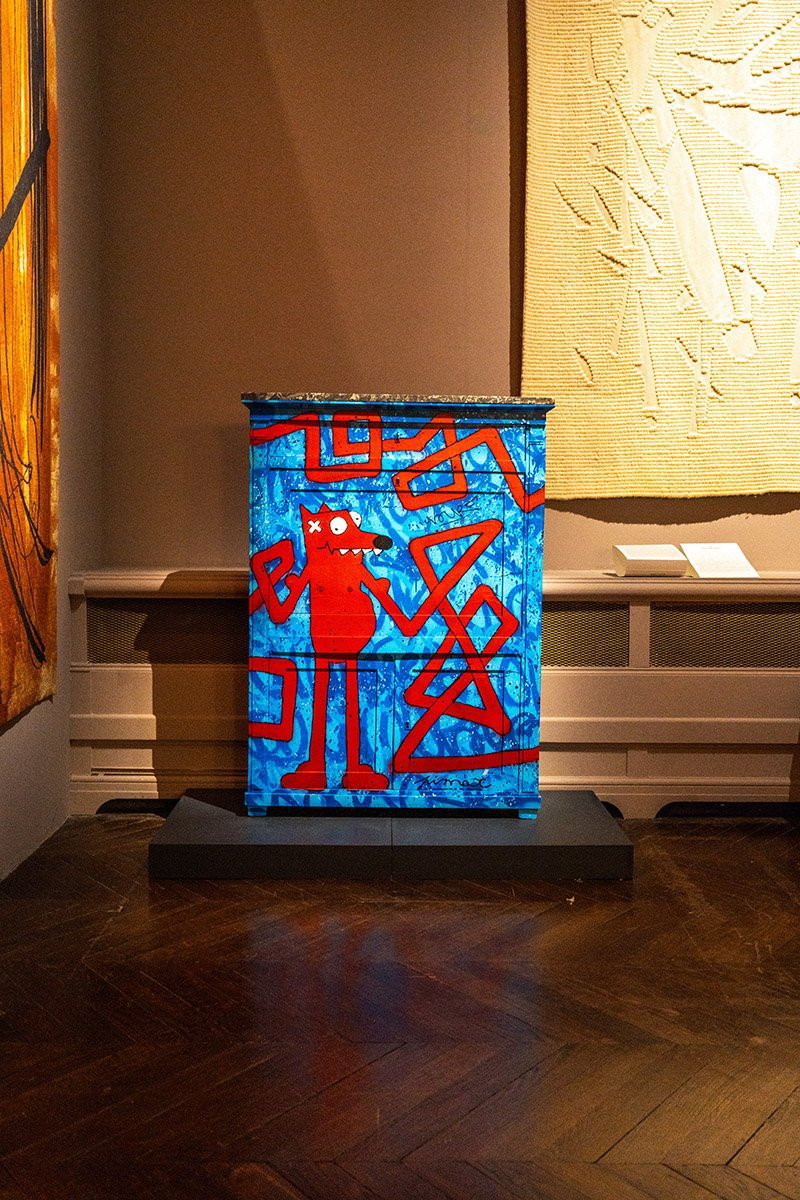
1880-B.P.M, by the Hall Haus design collective
It’s hard to believe that this DJ table was once a Restoration-era dressing table! With its built-in speakers, it’s now ready for a mixer, hence the name “1880-B.P.M” for “Beats Per Minute”.
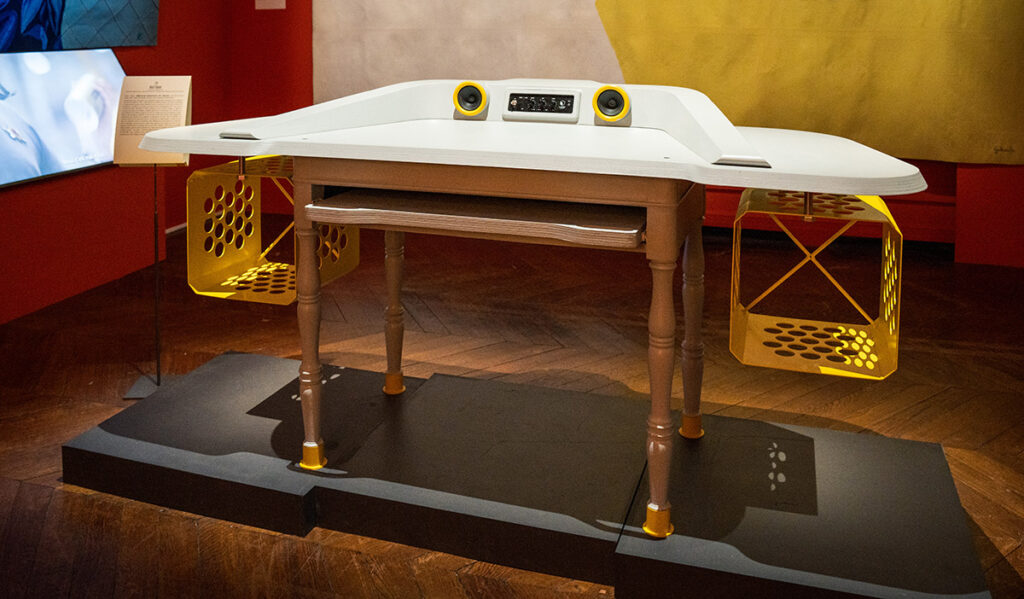
Figure with raised arms, by Pierre Yermia
At the heart of this figure is a brass floor lamp that has been completely transformed by sculptor Pierre Yermia – amazing, isn’t it?
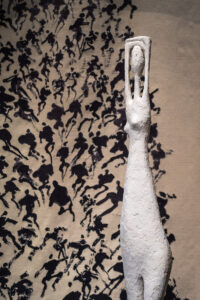
Les Couleurs des profondeurs, by Caroline Besse
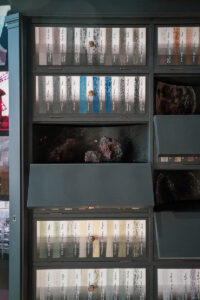
Caroline Besse has taken a piece of furniture that used to be used to store documents and turned it into a collection of French mineral pigments. On the outside, you can discover the nuances of the colours of these pigments, while the various drawers preserve the stones used to make them.
Re-discovering the tapestries of the Mobilier national
The exhibition’s curators, Yves Badetz and Marie-Hélène Massé-Bersani, have skilfully presented these ‘alienated’ works alongside a selection of tapestries from the collections of the Mobilier national. It’s a “2-in-1” exhibition, a must-see for both the updated furniture and the impressive tapestries.
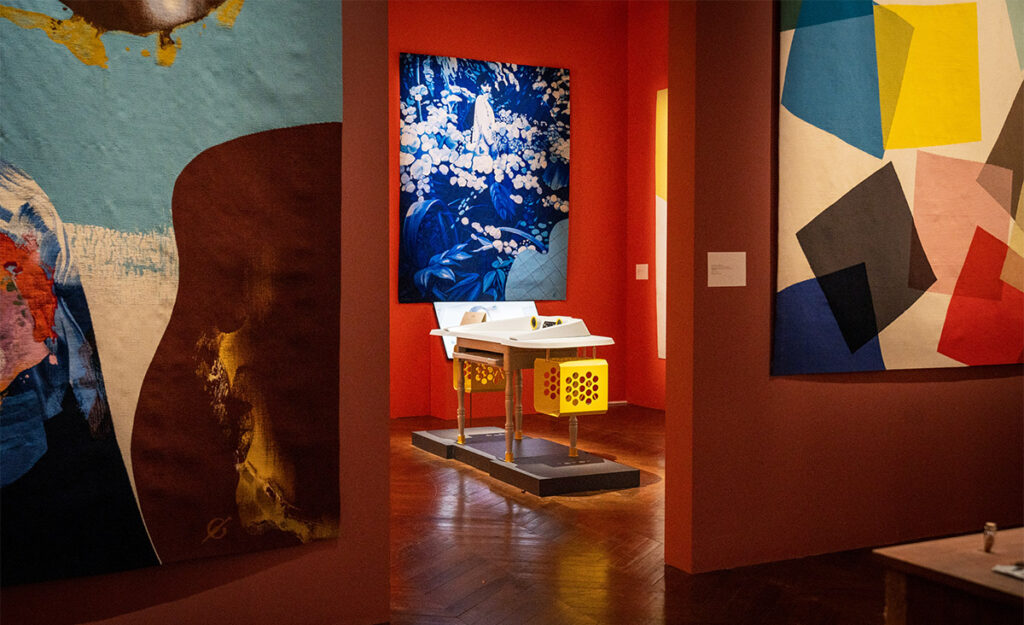
Extend your visit with carte blanche for Harry Nuriev
In parallel with the “Les Aliénés ” exhibition, the Mobilier national has given carte blanche to the artist Harry Nuriev to create two installations. In the Gobelins gallery, Harry Nuriev has created a gazebo covered in a textile that takes motifs from two tapestries in the Mobilier national, reinterpreted using AI to incorporate modern elements. The other installation is in the Gobelins chapel, and takes the form of a silver library accompanied by sofas.
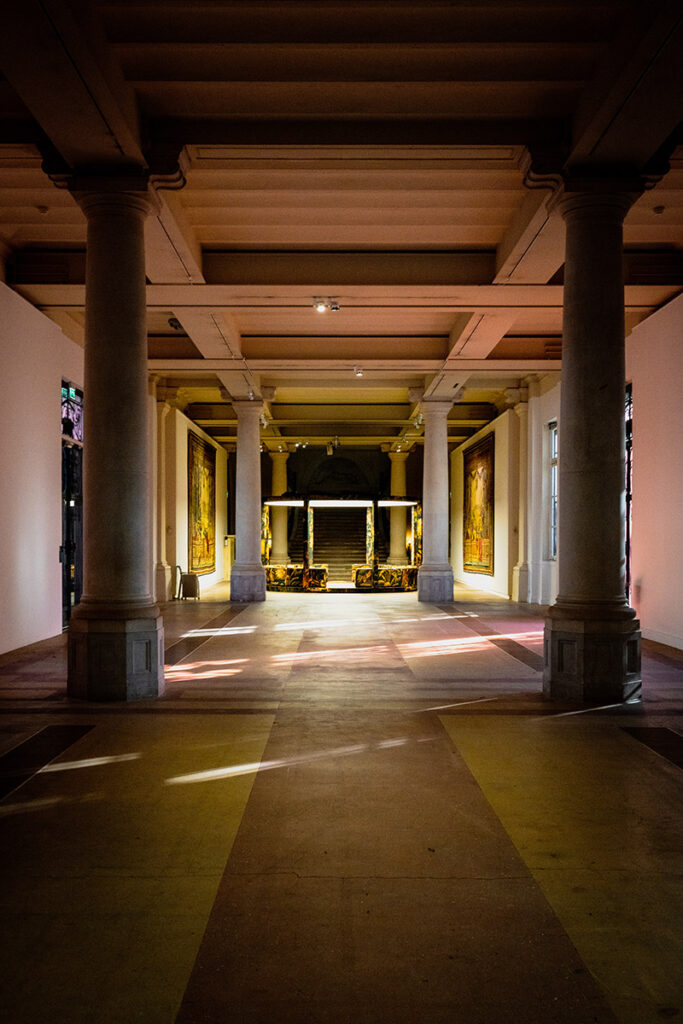
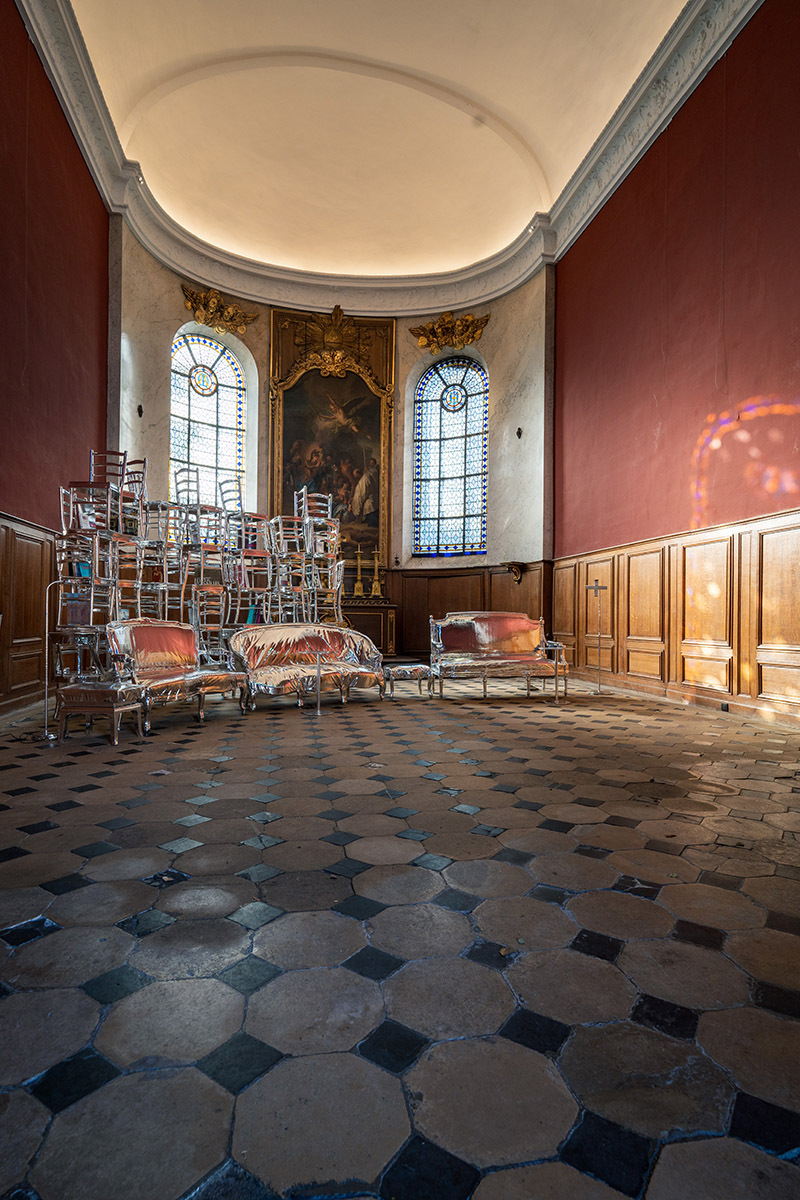
Useful information
Address :
Mobilier national, galerie des Gobelins
42 avenue des Gobelins
75013 Paris, France
Opening times :
Until 7 January 2024
Tuesday to Sunday
11am to 6pm
Website :
www.mobiliernational.culture.gouv.fr
Price :
Free admission
This article was produced in collaboration with Mobilier national
Thanks to Estelle and Jeanne for their warm welcome

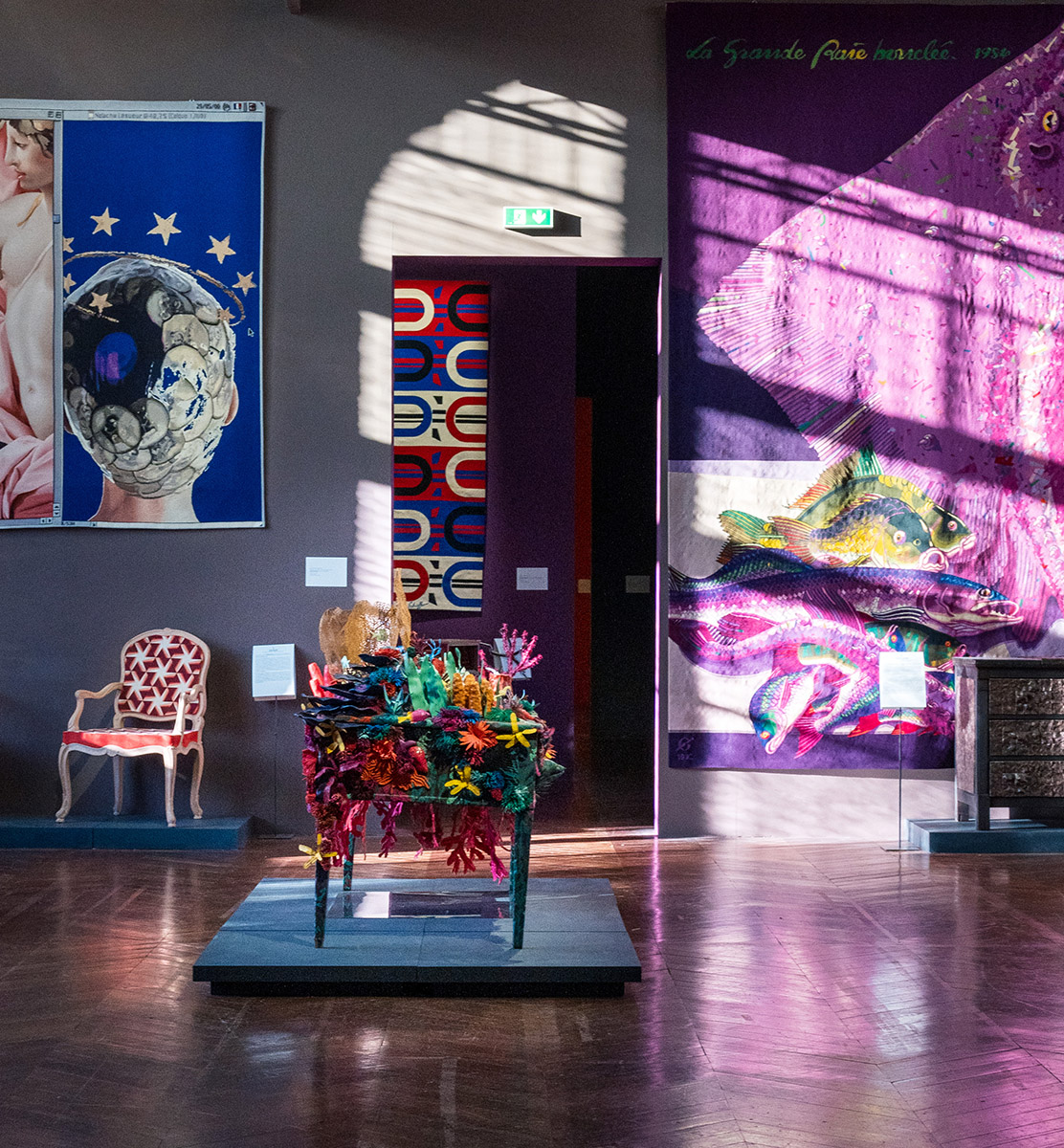



No Comments
Leave a comment Cancel